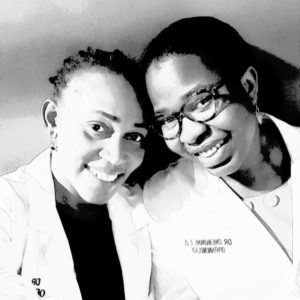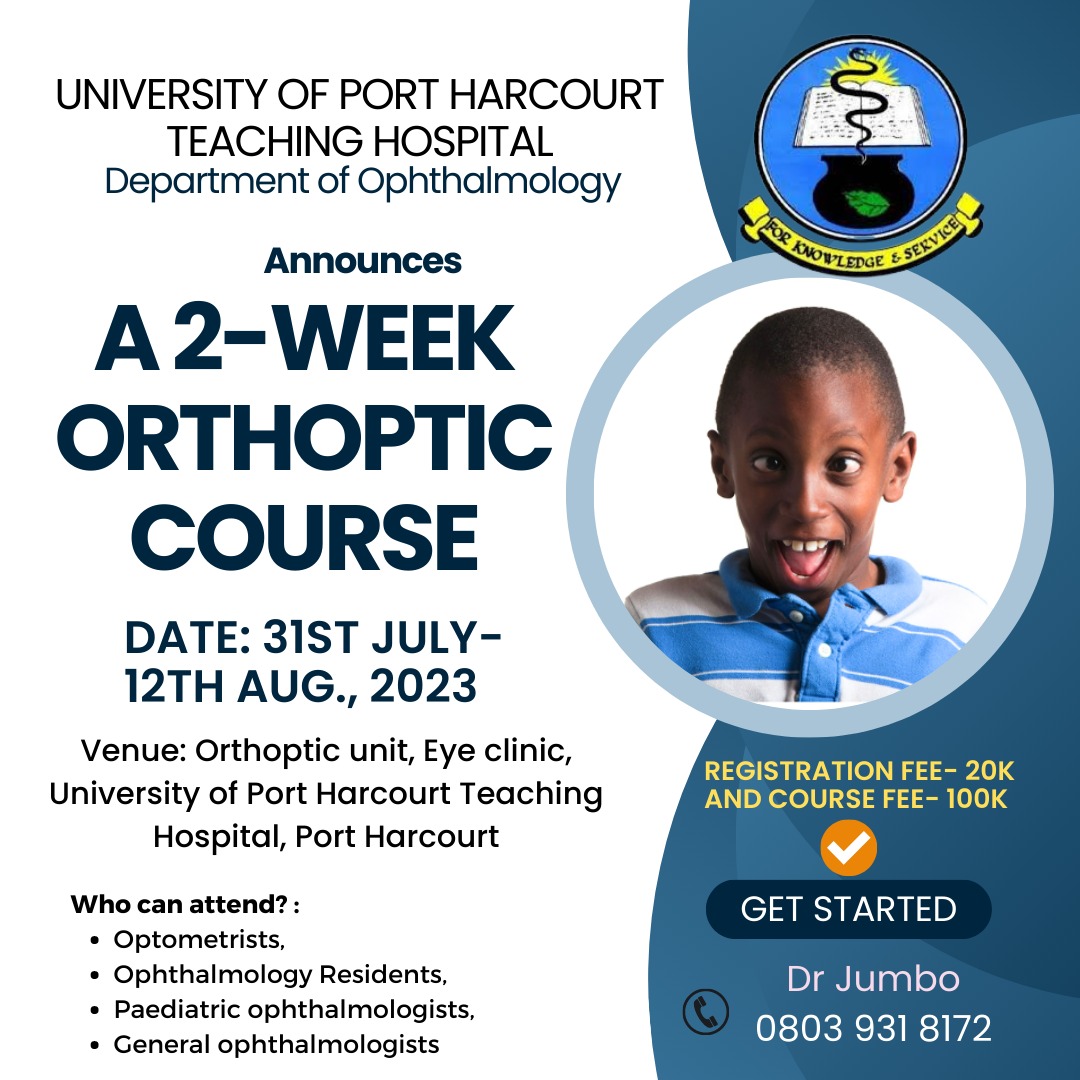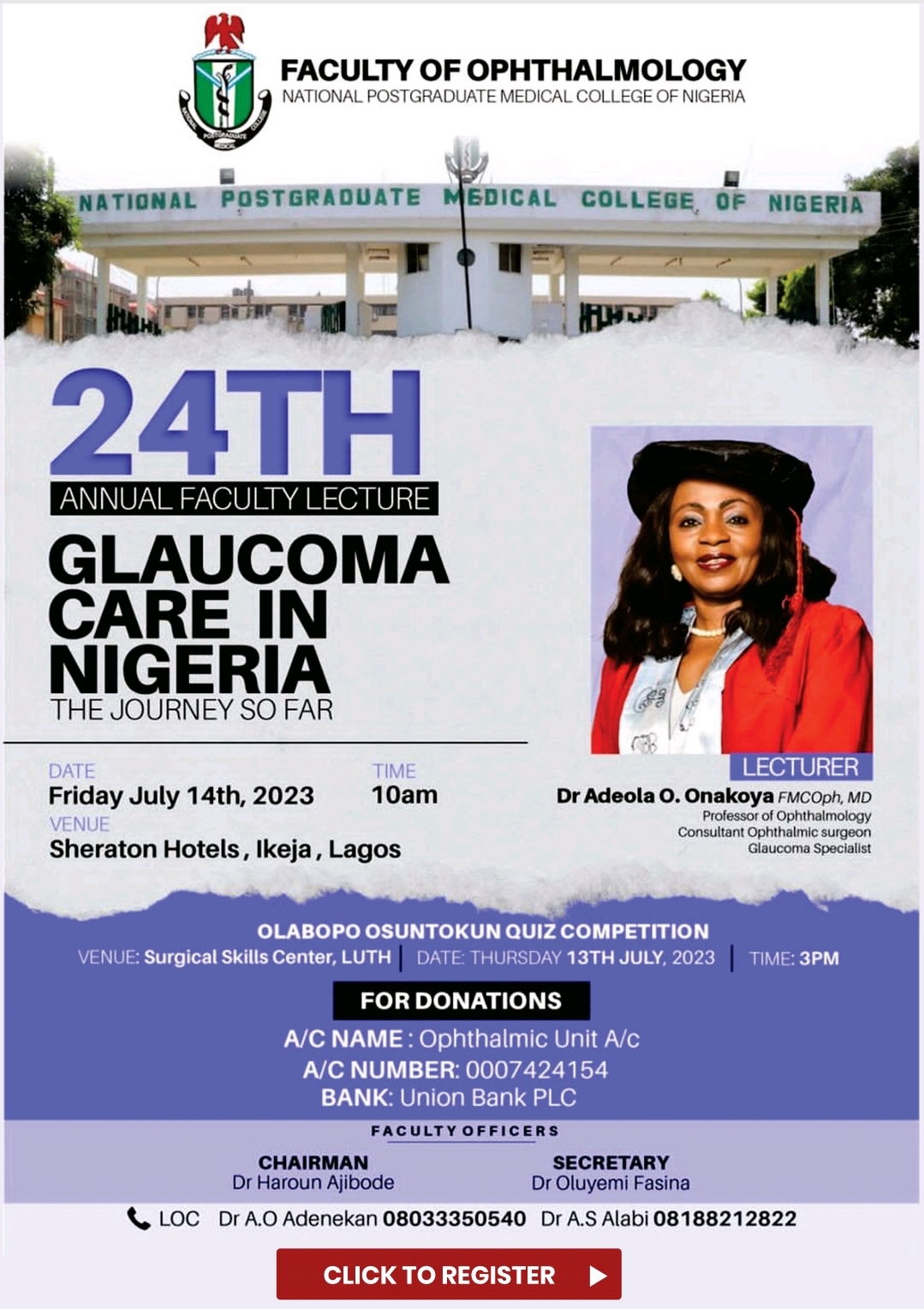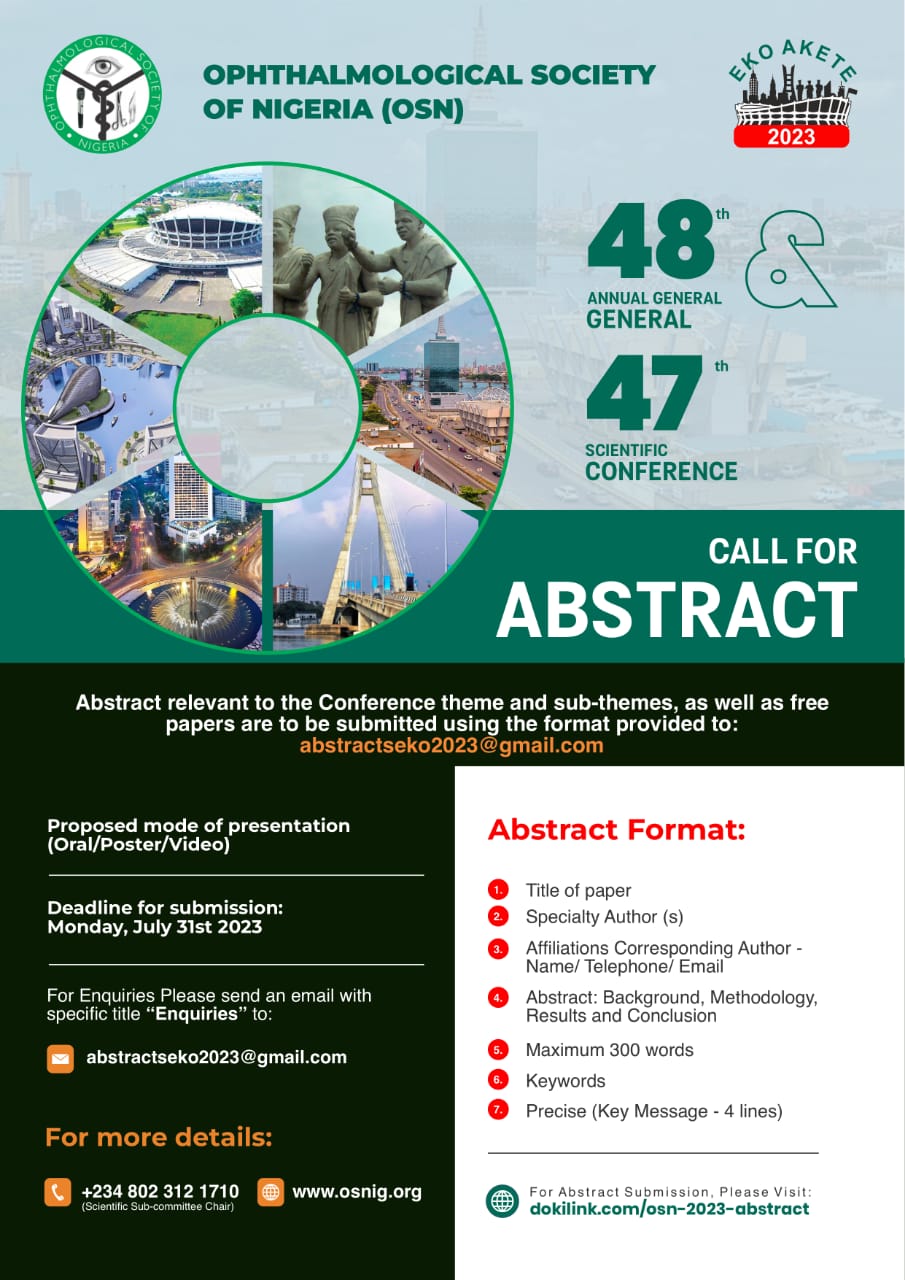I sat in my busy pediatric eye clinic with an anxious Mrs Olaolu and her son. Ayo, a bubbly, energetic 6-year old boy was referred from his school following an eye screening by his teacher, Mrs Alabi. She had noticed that he found it difficult copying lessons from the whiteboard in class. He preferred to copy from his seat mate than from the board. She performed a simple eye test (visual acuity) and to her surprise, the test showed his vision was quite poor. She then wrote a note to his parents asking them to take him to see an eye doctor.
After examining Ayo, I explained to Mrs Olaolu that he had cataracts in both eyes which was responsible for his poor vision. I asked if they had noticed any white speck in his eyes or any other signs that he could not see well. A white speck in the eye is a common way of detecting cataract in children or adults.
"I noticed that he sometimes bumps into things while running around, but I have always felt he was just being mischievous", Mrs Olaolu admitted.
"His cataracts are quite dense now. Cataracts cause gradual worsening of vision, which is why you may not have noticed earlier", I explained.
"Doctor, my husband uses really thick glasses" Mrs Olaolu said thoughtfully. "He went to Kano for eye surgery as a child. Could that be related to the cataracts in Ayo?" she asked, worried.
"Cataracts in children may be due to injuries during birth, conditions affecting body metabolism in the mother or baby, abnormalities of the eye that a baby is born with, infections that are passed on from a mother to her unborn child (e.g. rubella) or it could be an inherited condition. In fact, a lot of the time, the definite cause is unknown," I explained.
I further counselled her that cataract in children needed urgent expert care in order to maximise vision as much as possible.
Then I encouraged her to come back in a week with Ayo’s father and his two siblings so that they can all have their eyes examined properly.
- Some eye conditions are hereditary and can affect members of the same family such as cataracts, glaucoma, squint and retinoblastoma
- Cataracts in children have to be managed promptly to reduce the chances of amblyopia
- Always inform your doctor if other members of your family have similar health complaints as you do
- Counseling is indispensable in managing hereditary eye disorders. Be sure to discuss whatever concerns you may have with your doctor
- Anticipatory and early interventions may make all the difference between sight and blindness in a child
#BeProactive #EyeHealth #ChildhoodCataract
By Dr Ezinne Onebunne
09.05.2020




